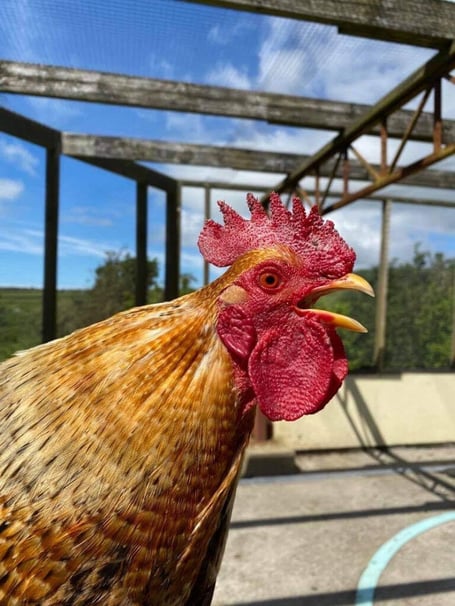You may well have already read, or heard, about the Isle of Man’s first confirmed case of avian influenza (or bird flu) following positive tests for the H5N1 strain on dead geese in Sulby.
The UK has been battling its largest ever outbreak of the disease since November 2021, resulting in tens of thousands of farmed birds being culled, and so it was just a matter of time before it reached the island.
An Avian Influenza Prevention Zone (AIPZ) has been set up within a one kilometre radius of the site in Sulby.
This means that all bird keepers (whether they have pet birds, commercial flocks or a few birds in a back garden) are required by law to house their birds indoors and not move them off their property.
The Department of Environment, Food and Agriculture (DEFA) is asking all bird owners on the island to house their birds as a precautionary measure, alongside ensuring biosecurity measures are in place. As a reminder, these include:
-Ensuring the areas where birds are kept are unattractive to wild birds, for example by netting ponds, and by removing wild bird food sources
-Feeding and watering captive birds in enclosed areas to discourage wild birds
-Minimising movement of people and pets in and out of bird enclosures
-Regularly cleaning and tidying areas where birds live
-Disinfecting footwear when leaving the bird enclosures (or, better still, keep separate footwear in the bird enclosure), and washing hands thoroughly
-Keeping other pet birds, such as ducks and geese, completely separate from hens (because the former often do not show signs of bird flu but can easily pass on the virus).
Bird flu isn’t an airborne disease, and it spreads from bird to bird by direct contact or through contaminated body fluids and faeces.
It can also be spread via contaminated feed and water or by dirty vehicles, clothing and footwear.
The avian influenza virus changes frequently, creating new strains, and there is a constant risk that one of the new strains may spread easily among people.
A person living in the south of England, who had regular contact with a large number of birds, tested positive for H5N1 earlier this month but there are currently no signs of onward transmission.
The DEFA is asking the public not to touch ill or sick birds, to minimise the risk of spreading the virus but, equally, a sick bird needs prompt veterinary attention. If you suspect a bird has bird flu (if it’s lethargic and unable to balance) you should notify the DEFA in the first instance on 685844.
If you have an injured bird, wild or captive, please do not take it into a veterinary surgery’s waiting room - keep it outside in a container so that a vet can examine it in the car park.
Make sure you wear gloves and disinfect anything that has come into contact with the bird.
We are worried that publicity about bird flu will have a detrimental effect on our garden and pond-based birds, many of which rely on us for food at this time of year.
Please do not be deterred from feeding them but be extra vigilant about keeping bird feeders, tables and water bowls clean, and washing your hands thoroughly after you’ve touched them.
We struggle to rehome cockerels at the best of times, but bird flu will make this task even more difficult.
We have 15 handsome boys on site here at Ard Jerkyll at the moment, including Antoni pictured - all looking for rural homes where they can cockadoodle to their hearts content.




